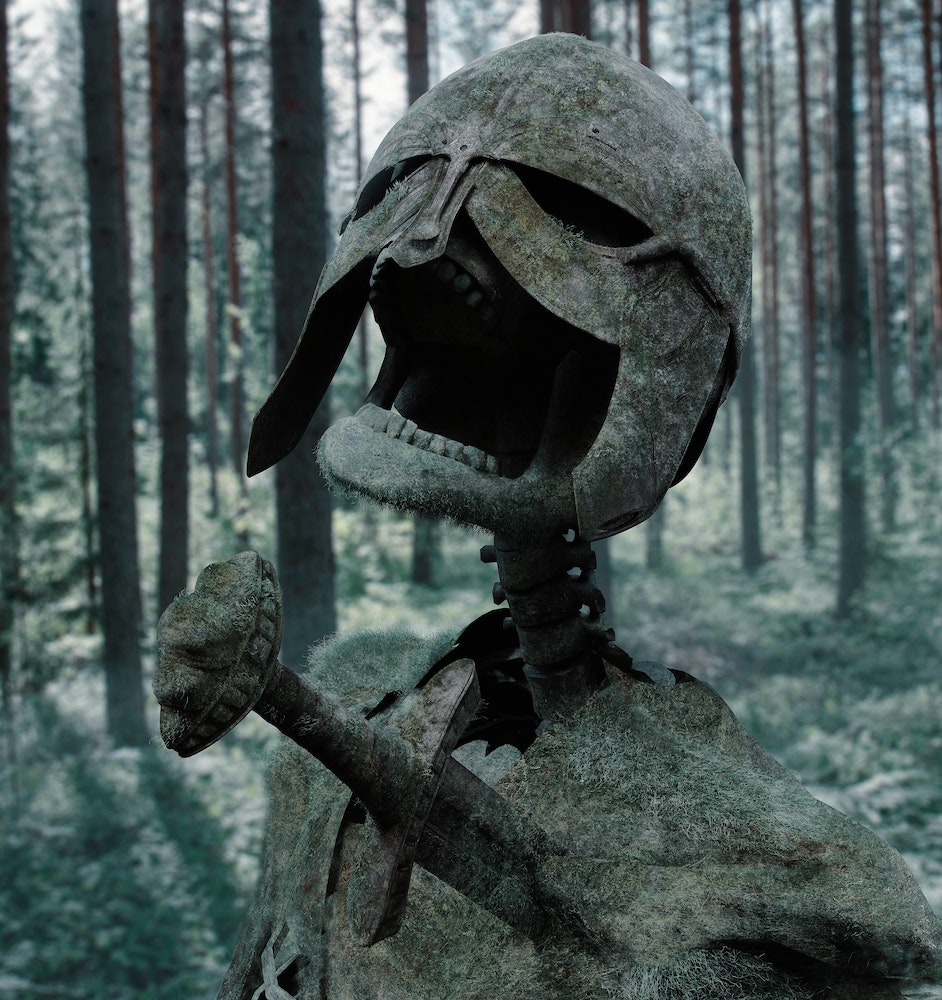
The American emphasis on competition and talent is so normal, it’s hard to critique it. But lately, every example of how much we think life depends on competition feels like a death wish to me.
Like this headline: “‘Talentism’ defines success in new capitalism , says Davos chief.” The article, published in July of 2020, explores a quote by the Davos World Economic Forum host Klaus Schwab, pointing out that, unlike in previous capitalist eras which focused on industry, today’s capitalism is more dependent on entrepreneurship instead of cashflow.
Geoffrey Colvin explains a bit of this economic shift in his book Talent is Overrated. Companies like Google don’t depend on huge investments of capital (ie, money) in order to succeed. Tech start-ups are much more dependent on people like innovative software programmers. Unlike, say, General Electric, they don’t need a ton of expensive equipment, factories, warehouses or infrastructure to develop, store, and distribute a software program.
In that way, “capitalism” is now less about cold hard cash and more about “talent”—ie, the creative, innovative, entrepreneurial people you hire.
Look, this shift isn’t all bad. I love that creative people have an edge in today’s economy, and that scrappy programmers in their garages (including my husband) are creating amazing businesses that change industries. I like when smarts and dogged hard work are rewarded.
That’s all fine. But what follows in Colvin’s book stills me.
You Now Need to Be an Olympian to Get a Decent Job
After describing the research that questions the reality or usefulness of inborn talent, Colvin still doubles down on competition. He says that in a global economy, the “world-class talent” (meaning people) of each country is competing world-wide for the best jobs out there. In the 1800s, you competed for jobs against the people in your village or neighborhood. In the early 1900s, you competed against the people in your province or state. In the late 1900s, you competed within your own country. Now, however, the best people in the world compete against each other, and everyone else is left with crumbs.
Colvin notes this Olympic-style competition is filling a lot of us with a lot of anxiety. I can see it in my own school district, one of the best and wealthiest in the country. Parents and their children are constantly worried about giving their children a leg up, despite the fact that they already possess about a billion advantages before they enter kindergarten. In this “global competition” story we’re telling, nobody can rest on their laurels, ever.
I thought, picking up a book called Talent is Overrated, that I’d learn about a real alternative to this endless tournament-style approach to life. But instead, Colvin’s solution is to focus on effective practice instead of innate ability as a way to compete.
Never once does he question the central metaphor of competition. Tellingly, the target audience is the kind of people that have time and energy to read an entire book on talent and also train themselves to practice their skills more effectively. Someone with a high school education in Appalachia, or someone with Down’s Syndrome, or a black kid with dyslexia in Queens? They’re probably not going to pick up the book, much less follow Colvin’s advice.
“Practice” as an alternative to talent turns out to be a distinction without a difference.
I don’t think we’re going to get an alternative unless we look under the hood of “talent” and figure out where it came from.
That Parable Where Jesus Blesses Slavery and Exploiting the Poor
In the ancient Near East (and the Bible), a “talent” was both a unit of measure and a currency. In the Bible, it was the equivalent of about three years wages for the average day laborer: a crap-load of wealth.
But our current word usage specifically comes from a weird-ass parable (seriously, the more I look at it, the less I understand why Jesus told it) in Matthew 25. Three slaves are given decreasing amounts of talent while their enslaver goes on a trip. One slave invests his large amount of gold, and gets a 100% return on investment. The second invests his middling amount of gold, and also gets a 100% return. The third, afraid of the enslaver, buries his treasure to preserve it.
When the enslaver gets back, he asks for an accounting, and praises the financial acumen of the first two. But he condemns the last slave to in the outer darkness, “where there is weeping and gnashing of teeth.”
Yes, the original Greek text does say slaves, not the more palatable “servants”. Also, as William R. Herzog II points out in his book, Parables as Subversive Speech, a 100% ROI was only possible if you exploited poor people by robbing them of their land.
The whole parable is perplexing alongside the Sermon on the Mount.
Let’s review: some people are born with more advantages, and make even more of that luck by exploitation. They are rewarded handsomely. Some start with fewer resources, and are afraid, and are punished for their fear and honesty. All of them are slaves.
Sounds pretty timely, does it not? Look, I love Jesus, but this parable is whack.
Talent Is a Gladiator Match That Leaves Only a Few Alive
I was called “talented” a lot as a child (I taught myself to read at age three, had an acting talent agent, almost perfect vocal pitch, and was coordinated enough to train in pre-professional ballet programs). One would think this helped me succeed, but instead it put a shit-ton of pressure on me to “live up to my potential.” In a childhood filled with trauma, and loss, I was terrified of getting C’s in math.
It indeed felt like being the last slave in the parable, where NOT using my gifts on demand, to their utmost, with a big return on investment, would send me to the outer darkness, not to mention disappoint every adult I cared about. The pressure this put on me while I was grieving and terrified still makes me want to weep.
And that’s a child who was “successful”! Those less obviously gifted also suffer—the “ordinary” or, even worse, the physically and mentally disabled, since our entire society deems “productivity” and “success” as the same as “worthiness.”
We always define talent as a competition. It’s a “survival of the fittest” where “fittest” is defined in a punishingly narrow way, and those that don’t qualify are discarded. John Swinton explores the ableist abusiveness of this outlook in his excellent book, Becoming Friends of Time. Swinton points out that the word “handicap,” often used interchangeably with “disability,” is literally a weight put on competitors in a race.
Swinton writes, “Those unlucky enough not to be able to compete effectively in the race were considered to be ‘handicapped in the race for life, handicapped in the battle of life, or handicapped in the struggle for existence.’”
To be ordinary in this story is bad luck. But to actually be disabled is terrifying.
But why do we define life as a battle to the death? Why is it that certain inborn advantages (or inherited advantages like wealth) mean some people are valued more? Why is it okay to exploit people to gain a toehold for yourself and your own? Why do we assume this horror is the only way to do things?
Even Those of Us Who “Succeed” Are a Hair’s Breadth from Dying
Maybe we could justify the “fight to the death” metaphor for life if it actually blessed the “talented,” but I can tell you from bitter experience it does not. The problem is that as soon as someone has a bit of an edge over you, all your safety evaporates. I still remember the first day at my elite university, when the freshman class was herded into the school’s concert hall, and everyone who was valedictorian of their class was asked to raise their hands.
I did not, but most everyone else did.
Did that exercise fill the valedictorians in that room with pride, or motivation? No. It filled all of us with unease. Some of us had been big fish in small ponds—but in the lake we’d just been dropped into, would we get eaten alive?
Our society spotlights people like Steve Jobs or Elon Musk who have succeeded financially beyond anyone’s wildest dreams. In particular, we keep the light shining on their external successes, without ever widening the frame to wonder if they’re happy, connected, generous-hearted, or kind. Maybe they are! I don’t know. But you and I both know that the Venn diagram overlap of “rich and successful” and “entitled asshole” is pretty big. So is being “talented” and successful really worth it in a human sense?
We also don’t look at all of the “talented” people who burn out, suffer from anxiety and depression, have toxic marriages, are estranged from their children, or when they retire, collapse because their life has no meaning outside of work.
At the same time, we quietly pity people who are less-obviously gifted but live lives of quiet diligence, in workaday jobs, who are happy and content to be alive.
We don’t even want to think about mentally disabled people who, despite all our snobbery about “achievement,” enjoy their meals, have fun hobbies, and make friends at their jobs. One of my husband’s childhood friends has some developmental disabilities from cerebral palsy. He works in advocacy for disabled people, is gregarious, thoughtful, and kind, and also has travelled the world on his modest salary. I doubt Elon Musk is happier or nicer than he is.
“Competition” as a guiding value for human life kills us
The celebration of “talent” at the expense of humanity is a death wish. Imagining that we’re all gladiators in the Roman Coliseum where only very few of us will be left standing is a terrible way to live. Frankly, I wish Jesus had turned his parable on its head like he usually did, with the “successful” and exploitative slaves put into the outer darkness, while the lone protestor who named the abuse at the center of the enslaver’s household was set free. Theologians like Herzog work mightily to reinterpret it, but frankly, it’s tough.
We don’t need more emphasis on “talent” in our culture. We need to wake up to the fact that “achievement” is killing us all.



![quote: I suppose I don't [feel content with my creativity], as my gut response is that I'd like to be more creative. A bestselling author of a dozen books](https://www.heathercaliri.com/wp-content/uploads/2022/09/IG-quote-3-80x80.png) What I learned about creativity (and its seeming lack) from my readers
What I learned about creativity (and its seeming lack) from my readers